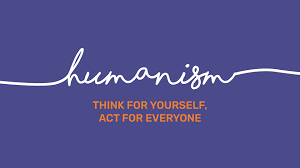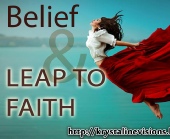



 NEXT
NEXT
 BACK
BACK
 Forum
Forum


Philosophical musings on Quanta & Qualia; Materialism & Spiritualism; Science & Religion; Pragmatism & Idealism, etc.




Belief and Faith are not one and the same


Post 42. 06/25/2018
Faith versus Belief
Leap of Faith or Inference of Reason ?
So where should we place our faith : human nature or divine providence? Each of us will have to resolve that conundrum for himself. But I have found that both religious & scientific authorities disagree among themselves. So I'm more likely to trust the ones that take human fallibility into account in their evaluation, by questioning all “facts” and all experts. But such methodological doubt usually finds that simple Either/Or answers are as likely to be wrong, as right. Which is where the BothAnd principle is handy, to find useful answers in the gray area between True and False.
Faith, within a particular tradition, is inspirational. But when different faith traditions clash, how can you decide which belief system is on God’s side? Such faith feuds used to be settled by the sword. But since the Enlightenment, reasonable people have turned to critical analysis to get at the root of the dispute. If you allow doubt to test your faith, you may learn about sub-
For children, whose reasoning powers are immature, faith comes naturally, as they recognize their incompetence relative to adults. But those who retain the feeling of rational inferiority into adulthood, will become the pawns & slaves of more self-
Even though supernatural accounts of mysteries have some universal themes based in human nature or cultural memory1, they have nothing like the Standard Model of Physics, which is grounded in mathematical logic that all humans have in common. Christians & Muslims & Mormons produce inspira-
So, how do you determine where to anchor your faith? That's the purpose of skepticism2. Faith without doubt is subject to deception. Christians are skeptical of Muslim beliefs, and Deists are skeptical of both. Ronald Reagan used a catchy phrase to summarize his nuclear negotiations with Russia : “Trust but verify”. That sounds like a BothAnd attitude toward experts and authorities. Acknowledge their expertise, and their fallibility.
End of Post 42
1a. Archetypes :
“(in Jungian psychology) a collectively inherited unconscious idea, pattern of thought, image, etc., universally present in individual psyches.”
1b. Monomyth :
“God is a metaphor for a mystery that absolutely transcends all human categories of thought, even the categories of being and non-
https://en.wikipedia.org/wiki/Joseph_Campbell
1c. Cosmo-
The Enformationism worldview takes a BothAnd stance on the question of God. The cause of the origin of our world is a mystery that even science has no way to resolve. So we can imagine metaphors to explain the enigma of Being : Multiverse or G*D. One explains nothing, but takes physics for granted; the other explains every-
2. Skepticism :
Modern Science began when the ancient Greek philosophy of Skepticism was rediscovered. But instead of simply sus-
Leap of Faith :
“Soren Kierkegaard's (who coined the phrase) philosophy on Leap of Faith is rooted in the distinction between Belief and Faith. This philosopher argued the merit of faith in God. In fact, he asserted that life is only worth living if you have total FAITH in God. According to Kierkegaard, BELIEF is reserved for things that can be proven by evidence. On the other hand FAITH is reserved for things that lack evidence. Since he also agreed that God is beyond logic, proof, or reason, he had no trouble admitting it took a Leap of Faith to believe in God; after all lack of logic, proof or reason are the very things necessary for Faith to be FAITH.”
https://www.starlightprojects.org/home/blog/belief-
Note 1 :
Muslims make a “leap of faith” based on trust in the Koran as the word of God. Christians make a “leap of faith” based on trust in the New Testament as the word of God. How can you tell which is the true revelation, if your faith doesn’t allow “logic, proof, or reason”? Is it wrong to question the faith of those who doubt your own faith?
Note 2 :
Deists make a leap of reason to infer that a world with a beginning must have a creative cause prior to the advent of space-

Faith is not Belief :
According to Christian theology, beliefs are products of the natural mind, but Faith is a product of the soul or spirit.
https://www.huffingtonpost.com/rea-
In the Enformationism worldview the Soul/Self/Mind is a product of the natural brain. And faith is a natural response to frustrated desires. The Will makes a leap across the evidence gap to imagine that the object of desire is within its grasp.
[ see Self/Soul and Brain/Mind in Glossary ]